The Power of Cultural Diets in Supporting Prostate WellnessThroughout history, cultures around the world have developed dietary traditions rooted in locally available ingredients, seasonal eating and ancestral wisdom. These time-honored practices often emphasize whole, unprocessed foods like vegetables, fruits, nuts, seeds, herbs and lean proteins, which naturally support the body’s ability to thrive. When it …
The Power of Cultural Diets in Supporting Prostate Wellness
Throughout history, cultures around the world have developed dietary traditions rooted in locally available ingredients, seasonal eating and ancestral wisdom. These time-honored practices often emphasize whole, unprocessed foods like vegetables, fruits, nuts, seeds, herbs and lean proteins, which naturally support the body’s ability to thrive. When it comes to prostate health, these traditional diets offer valuable lessons. Modern research increasingly shows that populations adhering to their native eating patterns tend to experience fewer prostate-related concerns compared to those adopting highly processed, Western-style diets. By exploring the foods and habits of cultures with strong prostate health outcomes, we can uncover practical strategies to nurture this vital organ while honoring the richness of global culinary heritage.
Mediterranean Traditions: A Blueprint for Prostate Nourishment
The Mediterranean diet, celebrated for its balance and simplicity, stands out as a model for prostate wellness. Rooted in olive oil, fresh vegetables, legumes, fatty fish and moderate red wine consumption, this way of eating prioritizes anti-inflammatory, nutrient-dense ingredients. Tomatoes, a staple in Mediterranean cuisine, are often enjoyed cooked with olive oil, enhancing the absorption of beneficial compounds that support cellular health. Leafy greens, garlic, onions and herbs like oregano and basil add layers of flavor while delivering plant-based nutrients. Fish such as sardines and mackerel provide omega-rich oils that promote healthy cellular function. This diet’s emphasis on whole foods and minimal processing aligns with the body’s natural rhythms, offering a sustainable approach to prostate care that transcends fleeting health trends.
Asian Diets: Harnessing the Strength of Plant-Based Diversity
In many Asian cultures, meals are built around a harmonious blend of vegetables, fermented foods, mushrooms and plant proteins like tofu and tempeh. Traditional Japanese and Korean diets, for instance, feature seaweed, green tea and fermented soy products, which contribute to a diverse intake of plant compounds. Cruciferous vegetables such as bok choy and broccoli are common, prepared with minimal oil to preserve their natural vitality. Green tea, a cornerstone of Asian wellness, is enjoyed throughout the day, providing hydration and gentle energy. These practices highlight the importance of variety and moderation, showcasing how a plant-forward diet can create an internal environment where the prostate thrives. The integration of fermented foods also supports gut health, which is increasingly recognized as a foundation for overall well-being.
African Heritage Diets: Rediscovering Ancestral Wisdom
Traditional African diets, rich in colorful vegetables, wild-caught fish, nuts and seeds, offer another example of culturally rooted prostate support. In regions like West Africa, meals often include leafy greens such as spinach and amaranth, paired with healthy fats from avocado and palm oil. Grains like millet and sorghum provide sustained energy, while spices like turmeric and ginger add depth and warmth. These ingredients work synergistically to deliver broad-spectrum nourishment. Wild herbs and teas, commonly used in African communities, further enrich the diet with plant-based compounds. By embracing these heritage foods, individuals can reconnect with nutrient-dense choices that align with the body’s needs, moving away from ultra-processed alternatives that disrupt natural balance.
Western Diets: Learning from the Shift
In contrast, the modern Western diet—marked by high intakes of refined sugars, processed meats and industrial oils—has been linked to increased challenges in maintaining prostate wellness. As cultures adopt fast food and convenience meals, traditional cooking methods and whole-food ingredients often fall by the wayside. This shift correlates with rising concerns about prostate health in populations previously protected by their native diets. However, this reality isn’t a dead end; it’s an opportunity to reclaim lost practices. By gradually reintroducing whole foods, home-cooked meals and mindful eating rituals, individuals can begin to reverse the effects of dietary displacement. Small changes, like swapping packaged snacks for roasted nuts or incorporating more vegetables into daily meals, can make a meaningful difference over time.
Practical Steps: Bridging Tradition and Modern Life
Adopting elements of cultural diets doesn’t require a complete lifestyle overhaul. Start by incorporating one or two traditional meals into weekly routines, such as a Mediterranean-style grain bowl or a stir-fry inspired by Asian flavors. Prioritize cooking methods like steaming, roasting or fermenting over frying or heavy processing. Experiment with herbs and spices to enhance taste without relying on excess salt or sugar. Hydration is equally important; replace sugary beverages with herbal teas or infused water. Shopping locally and seasonally can help align modern habits with ancestral rhythms. Over time, these adjustments create a sustainable foundation for prostate wellness, blending the best of old-world wisdom with contemporary convenience.
The Role of Targeted Support in a Holistic Approach
While dietary traditions form the cornerstone of prostate health, certain supplements can complement these efforts by providing concentrated, natural ingredients. One such option isUromexil Forte, a specialized formula designed to support prostate wellness through a blend of plant extracts and essential nutrients. Developed with care, this supplement draws on ingredients traditionally used in prostate care, offering a convenient way to reinforce dietary choices. Because modern life can make it challenging to consistently access all necessary nutrients, Uromexil Forte serves as a practical addition for those seeking extra support. It’s important to note that this product is exclusively available through its official website, uromexil-forte-official.com, ensuring authenticity and quality for users committed to their wellness journey.
Embracing a Proactive Mindset
Prostate wellness is not a passive endeavor but a dynamic process shaped by daily choices. Cultural dietary traditions remind us that food is more than fuel—it’s a connection to our roots, a source of joy and a tool for nurturing the body. By learning from global cuisines and integrating their principles into modern routines, individuals can take proactive steps toward long-term health. Supplements like Uromexil Forte offer additional support, but their effectiveness is amplified when paired with a nourishing diet and mindful lifestyle. Ultimately, the goal is to create a personalized approach that honors both ancestral wisdom and contemporary science, empowering each person to thrive from the inside out.
Looking Ahead: Sustaining Health Through Generations
As interest in natural health grows, so does the opportunity to revive and adapt cultural dietary practices for future generations. Teaching children to appreciate whole foods, sharing family recipes and celebrating seasonal harvests can instill lifelong habits that benefit prostate health. Community gardens, cooking classes and cultural festivals offer avenues to reconnect with food in meaningful ways. Even in a fast-paced world, these traditions can be preserved and reimagined to fit modern needs. By viewing prostate wellness as part of a broader tapestry of health, individuals can cultivate resilience and vitality that extend far beyond any single meal or supplement. The journey begins with small, intentional steps—each choice a tribute to the wisdom of the past and a gift to the future.










